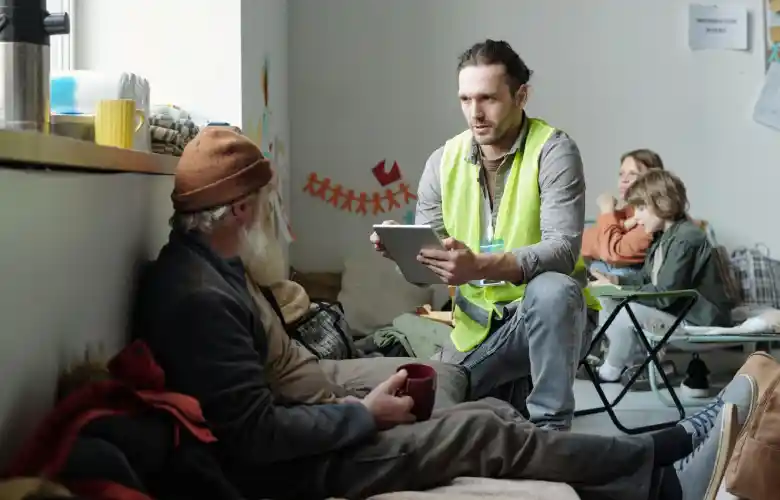Sonoma County Homelessness Grants: How Organizations Can Apply and Succeed
Why Homelessness Funding Matters in 2025
On any given night, many individuals and families in Sonoma County face hardship due to high housing costs, limited shelter options, and food insecurity. Meeting these essential needs is critical to community stability.
The Community Foundation Sonoma County (CFSC) has made addressing basic human needs a core priority. In 2024, the Julia L. Grant Fund for Basic Human Needs awarded over $1.3 million to support programs providing food, shelter, and permanent supportive housing. These grants strengthened the safety net for vulnerable populations and presented a valuable opportunity for organizations preparing for future funding.

Breaking Down the Julia L. Grant Fund
Who Can Apply
Eligible applicants include Sonoma County 501(c)(3) nonprofits or organizations fiscally sponsored by a 501(c)(3). Applicants must provide direct services in one of the following areas:
- Food programs addressing hunger and food insecurity
- Emergency or transitional shelter
- Permanent supportive housing
Note : Referral-only programs and requests for direct financial assistance (e.g., rent, utilities, or gift cards) are not eligible.
Grant Priorities
CFSC prioritizes projects that:
- Expand emergency or transitional shelter capacity
- Develop permanent supportive housing programs.
- Strengthen case management and referral systems for individuals in need.
- Reduce barriers to housing access, including challenges related to mental health or substance use.
Grant Size & Duration
- Median Grant Size (2024): $20,000
- Maximum Grant Request: $30,000
- Total 2024 Funding: Over $1.3 million awarded to 50 organizations
Grants can be used for program costs, including overhead, but must support direct services in food, shelter, or permanent supportive housing.
2025 Application Timeline:
- January 6, 2025: Grant application opens
- January 31, 2025 (5:00 PM): Grant application closes
- Late February 2025: Applicants notified of awards
- Grant Period: March 15, 2025 – March 14, 2026
Past Grantees
Recent awardees demonstrate CFSC's focus on measurable impact and community collaboration:
- COTS (Committee on the Shelterless): Shelter and transitional housing
- City of Santa Rosa Housing and Community Services: Housing support and wraparound services
- Community Action Partnership of Sonoma County: Housing assistance and community support
For the most up-to-date program details and eligibility requirements, please visit CFSC's official pages:
Note : All information is subject to change. Applicants should confirm eligibility and application details on the official CFSC website before applying.
How to Apply for Sonoma County Homelessness Grants
1. Monitor CFSC's Grant Portal
- The 2025 Julia L. Grant Basic Human Needs program is currently closed. Future grant invitations are expected in Fall 2025.
2. Align Your Mission
- Ensure your project addresses critical needs such as food, shelter, or permanent supportive housing.
- Demonstrate how your services reduce hardship and improve access to essential resources.
3. Gather Strong Data
- Track outcomes like individuals served, shelter placements, program participation, and reductions in food insecurity.
- Use this data to show a measurable impact to funders.
4. Tell a Compelling Story
- Combine quantitative results with client experiences or case studies to highlight community impact.
5. Submit via CFSC’s Online Portal
- Create or log in to your Grantee Portal account to complete the application.
- Applicants with fiscal sponsors must upload the Fiscal Sponsorship Form and sponsor budget.
- Follow all program-specific instructions carefully.
How Organizations Can Stand Out
Key Success Factors:
- Projects that align precisely with CFSC priorities (food, shelter, housing)
- Demonstrated measurable outcomes and community impact
- Strong collaborations with other local service providers
Action Steps:
- Implement outcome-tracking systems
- Document partnerships with shelters, clinics, and outreach programs
- Maintain up-to-date compliance and organizational documents.
- Prepare both data dashboards and client stories for funder-ready submissions.
Grant-Readiness Checklist:
- Clear program goals for 1–3 years
- Outcome and referral tracking systems in place
- Documented partnerships with local providers
- Compliance documents current
- Compelling client stories and impact dashboards
- Budget aligned with program limits
Where Digital Tools Fit In
Many organizations now rely on technology to track referrals, outcomes, and compliance. Tools like GridSocial by SocialRoots.ai can support:
- Tracking referrals across shelters, clinics, and outreach teams
- Producing funder-ready dashboards with measurable outcomes
- Automating compliance reporting, saving staff time
Using structured digital systems helps organizations present their impact in a clear, funder-ready format.
Conclusion
Sonoma County continues to invest in housing stability, committing over $1.3 million in 2024 and preparing for the 2025 funding cycle.
By aligning projects with CFSC priorities, demonstrating measurable impact, and leveraging tools to organize data and track outcomes, organizations can strengthen their applications and compete effectively for homelessness grants.